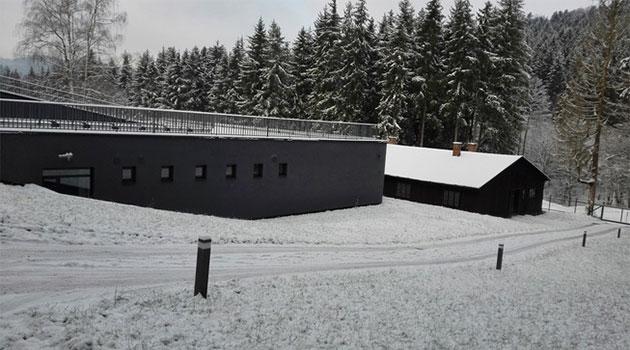Czech historian reminds public that cruel abuse was perpetrated at concentration camp for Roma in Moravia

Michal Schuster, an historian with the Terezín Initiative Institute in Prague, has described the operations of the former concentration camp at Hodonín u Kunštátu in Moravia in an interview for the Brno edition of news server iDNES.cz. Given the recent remarks made by Czech politicians Tomio Okamura and Miroslav Rozner casting doubt on the camps, Schuster said he believes the public is not able to draw accurate comparisons when it comes to Holocaust victims who are Romani.
“For Czechs it is easier to say the Roma were victimized by the Germans than to attempt to reflect on the fact that our forebears may have contributed to the persecution,” Schuster said in the interview. When asked whether the camp at Hodoníně u Kunštátu was a “pseudo-concentration camp”, as Rozner has alleged, Schuster answered that according to the circumstances in the camps, where people lived in atrocious conditions in terms of diet, hygiene, and their overall living standards, the camps at Hodonín u Kunštátu and Lety u Písku and were intended for the concentration of persons then termed “gypsies and gypsy half-breeds” who were then transferred to Auschwitz, where they were murdered.
“They were beaten and cruelly abused. The crew was armed. Their weapons were used in several cases because there were approximately 100 escape attempts, half of which were unsuccessful,” Schuster said of the situation at the concentration camp in Hodonín u Kunštátu.
“Can any of us actually imagine what it was like there? Each day you saw the people around you dying in front of your eyes, you saw women who are ill and whose heads have been shaved lying here and there, you saw children whose skin was just hanging off of their bones crying and calling for their mothers who had just died of typhus. All of the words we use to describe this are inadequate. The people who told me about what happened there had never managed to recover from those experiences,” Schuster said.
According to the historian the concentration camps were not created from one day to the next. Their formation was preceded by Romani people being excluded from society, by their being forcibly settled, and by creating lists of Romani families.
Their isolation in the camps and subsequent transports to Auschwitz were meant to simplify the murder of the victims without the public seeing it. The full interview (in Czech) is available HERE.